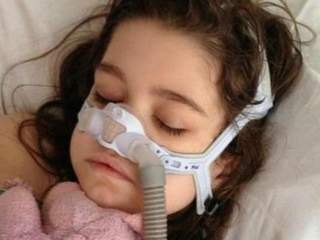
A couple of weeks ago, Rock and Roll Hall Of Famer Lou Reed got a new liver. His wife says he was near death and wouldn’t have survived without it.
At the same time, Sarah Murnaghan can’t get a new lung. She has cystic fibrosis, and doctors say she’ll only live a few more weeks if she doesn’t get a transplant.
Lou Reed is 71 and abused alcohol and drugs, including heroin, in his lifetime. Sarah’s entire lifetime has only lasted one decade. There’s something wrong with a system that can save him, but not her. The problem is that, under current transplant rules, kids have to wait for pediatric donors and are ineligible for adult organs, which are reserved exclusively for those 12 and older, triaged by medical professionals to determine who needs an organ the most.
Sarah’s parents tried to get the system changed so that Sarah could be on equal ground with adults in desperate need, going as far as asking Secretary of Health and Human Services Kathleen Sebelius to intervene, but she refused, arguing that she can’t override the policies of the Organ Procurement and Transplant Network for one individual. Last week, Chad Holtzman, the attorney representing Sarah and her family, got a federal judge to issue a temporary restraining order in the case, but that doesn’t solve the problem.
On my America Weekend show, I asked Holtzman to explain the intricacies of the case, the chances of Sarah getting a lung, and how many other children are affected by this policy.
Listen to our conversation here.
The bottom line is that we need more people to designate themselves organ donors. As of today, there are over 118,000 people waiting for a heart, lung, liver, kidney, or other organ. Every day, 18 people die waiting for a transplant.
Instead of the current system, donation should be on an opt-out basis — that is, rather than your next of kin having to make the decision at the gut-wrenching time of your death to donate your organs (or entire body), we should simply presume that saving as many as eight other lives is the right thing to do and go forward with harvesting your organs at death, unless you have specific written orders to the contrary.
It’s still your body and your choice (or your family’s choice), but we should lean towards the option that helps so many others. Until then, I encourage you to check that little box when you renew your driver license — and tell your family of your wishes, since they’ll probably be the ones informing the hospital personnel who don’t have time to dig into your wallet and see what your intent was.
